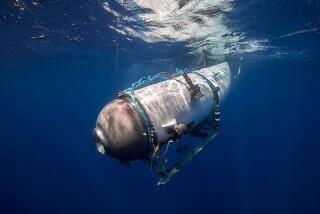12 killed in Lebanon blast
A roadside bomb targeting a bus carrying mostly soldiers shook the downtown of this northern city Wednesday, killing at least 12 people, 10 of them soldiers, and wounding more than 50 others, security officials said.
No party claimed responsibility for the morning rush-hour attack. But analysts and military officials suggested that Islamic extremists might have carried out the bombing to avenge their losing a fierce months-long battle against the army in the region last year.
The explosion occurred during an army crackdown in Tripoli against sectarian violence between Sunnis supporting the country’s Western-backed political bloc and a religious minority backing the Shiite militant organization Hezbollah.
“What happened is alarming. It is a bloody message to the army that has played a crucial role in keeping peace and stability in Tripoli lately,” a senior military official said on condition of anonymity.
A statement issued by the military said that the blast targeted “directly the army and civil peace in the country,” indicating that militants were seeking to exploit deep political tensions in Lebanon. The blast was the largest in months.
“The army and security forces will not yield to attempts to terrorize them with attacks and crimes,” said Lebanese President Michel Suleiman, the former army chief who directed last year’s siege against an Al Qaeda-inspired group that had infiltrated a Palestinian refugee camp just northeast of Tripoli. Several hundred militants and soldiers were killed in that fighting.
The attack Wednesday came hours before Suleiman traveled to Damascus, Syria, for a two-day summit to mend strained relations between Syria and Lebanon. His visit is the first by a Lebanese president since Syria withdrew its troops from Lebanon amid escalating tensions after the 2005 assassination of former Lebanese Prime Minister Rafik Hariri.
The meeting between Suleiman and Syrian President Bashar Assad resulted in a breakthrough as the nations agreed to establish full diplomatic ties for the first time since each won independence in the 1940s. The countries have long been mistrustful of each other, especially given Syrian interference in Lebanese affairs, and the decision to open embassies was seen as a step toward ending years of killings and political intrigue.
The bombing “might be meant to make Suleiman look as a weak president in Syria,” said Mustafa Allouch, a member of parliament from Tripoli allied with Western-backed Sunni leader Saad Hariri, son of Rafik Hariri. “Syria is still trying to show that it is the big brother that can guarantee security in Lebanon.”
Last week, Islamist groups in Tripoli held demonstrations calling for amnesty for hundreds of members detained by the military.
“This attack comes after a chain of unsuccessful attacks targeting the military which all could be interpreted as the vengeful acts of extreme Islamists,” said Oussama Safa, director of the Lebanese Center for Policy Studies.
“Although a political agreement was reached in May in the country, the understanding remains transitory and superficial,” Safa said, speaking of the accord that ended a long stalemate over selecting a president. “Issues have not yet been handled with depth, and the instability witnessed in Tripoli is a proof of that.”
Wednesday’s blast, at about 7:45 a.m., was caused by about 3 pounds of explosives placed in a bag on Banks Street, near a bus stop where soldiers usually gather, a security official said on condition of anonymity. The explosion shook the downtown business district.
A broken bus lay at the side of the road quickly sealed off by army trucks and tanks. Witnesses said that they saw body parts scattered at the scene. Local TV showed ambulances carrying injured people to hospitals while security officials cordoned off the site.
“There was a general state of panic. A woman was screaming, looking hysterically for her son,” said Diyaa Taleb, 20, who was near the site of the explosion. “I saw many wounded soldiers and a child who was lying on the floor pale and motionless with his face mutilated.”
--
Times staff writer Jeffrey Fleishman in Cairo contributed to this report.
More to Read
Start your day right
Sign up for Essential California for news, features and recommendations from the L.A. Times and beyond in your inbox six days a week.
You may occasionally receive promotional content from the Los Angeles Times.






